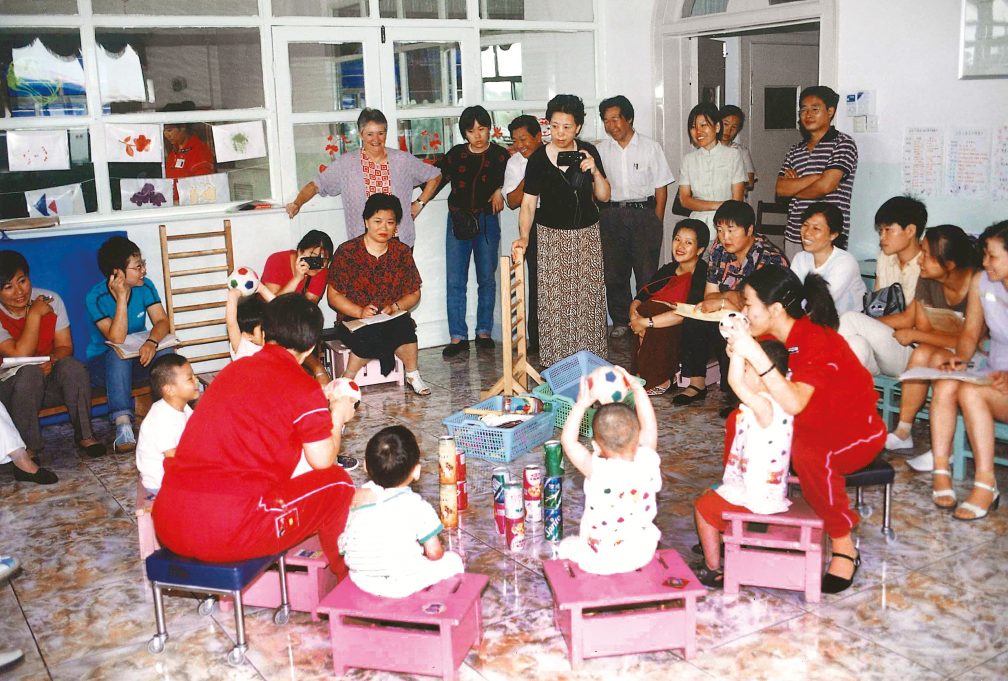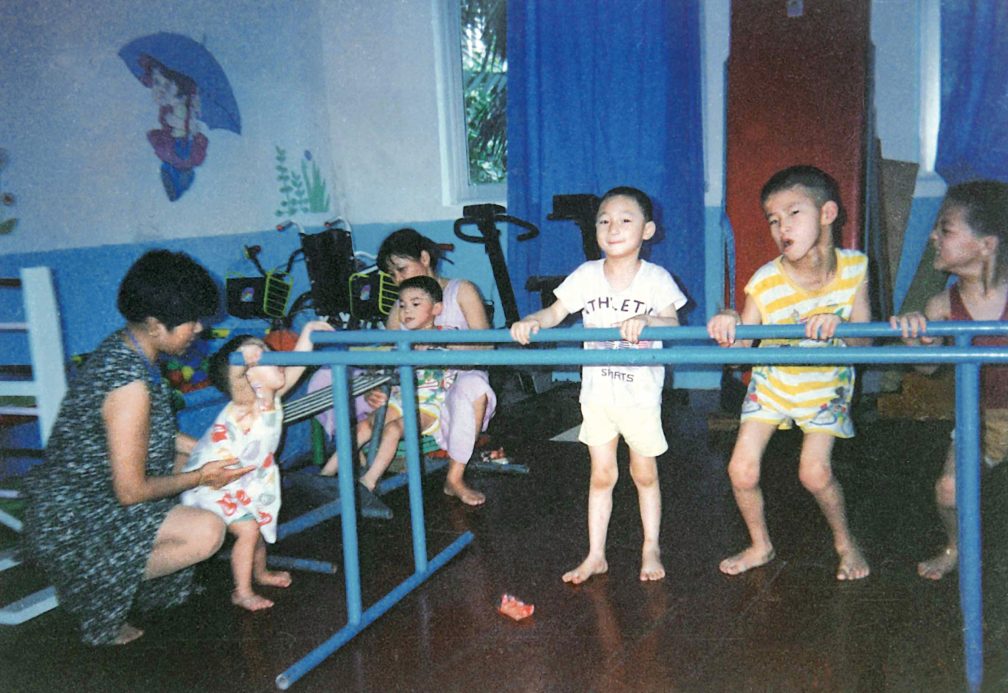It was a great joy to me that during my years in China I was asked to visit many different Centres for the disabled where I could use the principles of Conductive Education for the training of disabled children. Many of these little ones had been hidden away and neglected. The parents loved their child but felt helpless in the face of his or her disabilities. They embraced the new training we offered and looked forward with confidence to the road ahead.
High on my training list was Liming Family Orphanage in Bian Cun, Hebei Province run by the Sisters of St Theresa. Hebei, surrounding Beijing, is the most Catholic province in China. Bian Cun village was four hours by bus south of Beijing and nestled in the midst of lush cornfields, accessible by a dirt road from the main highway.
The Catholics here belonged to the ‘Underground Church’ but the tensions, strife and the violence associated with the clashes between the Underground and the Patriotic Association elsewhere was absent in Bian Cun. This was probably due to the fact that Catholics here were so numerous that the government officials and cadres left them alone.
These Sisters cared for a hundred disabled orphans, half of whom were fostered to Catholic parents in the community. During my time there, I concentrated on the children in the Centre. Both Sisters and parents wholeheartedly embraced the steps in Conductive Education and the children progressed rapidly. Their hope grew as they progressed; their lives were truly transformed. The Sisters and their helpers were outstanding in their determination to get the best for the children and their parents.
While I was there, the Sisters had moved into a new convent compound near their old quarters. The new place was funded by donations from Religious Congregations in Europe and built by the volunteer labour of local Catholics. The community comprised seventy-two professed Sisters and between twenty and twenty-five novices and postulants. The Superior General, in her late forties, was the oldest member of the Congregation. The last of their ‘pre-‘49’ Sisters had passed away some years before.
The novice mistress, who was a graduate in psychology, invited me to give a talk to the novices and postulants on Religious Life. I finished by telling them that our Sisters in our Motherhouse in Ireland prayed daily for the Church in China and that included them. They were incredulous at the thought that Sisters in a foreign country were praying specially for them. They were delighted and inspired on hearing the stories of our first Sisters who had come to China in the 1920s and had done so much to spread the faith, especially by looking after the poor and the sick.
I felt very much at home working with the Sisters. It reminded me of novitiate days in Magheramore – with a wake up bell at 5am, followed fifteen minutes later by a shrill whistle piercing the morning silence calling all to the daily workout in the courtyard. Meanwhile the able-bodied orphans would trot past doing their own running laps. Mass was at 5.30am, celebrated by the bishop. He lived in the junior seminary compound next door. Breakfast shortly after seven and then at eight o’clock all were at their workstations. Some Sisters staffed an outpatients and specialist eye clinic, a number were involved in the rehabilitation programme and many were taken up with initial and ongoing formation of younger members, as well as the housework involved in catering for a big number.
My favourite pastime was working in the vegetable and fruit garden with the postulants and novices. Jamie Oliver, celebrity English chef, would have been in his element there! And his catch phrase, ‘fresh from a monastery garden’ had a very real resonance to it. The staple food was white steamed bread (mantou), noodles, and corn soup, all homemade by the Sisters and, of course, an abundance of fresh vegetables.
Due to other commitments, I was sorry I was not able to stay for the final profession of eleven Sisters on the feast of St Therese. The day before I left, all the Sisters were busy preparing enough food to feed a thousand or so parishioners, including the Sisters’ families. The time I spent there was for me, in a way, a mini renewal – such life, commitment, charity and hope in abundance in this remote corner of China. The Sisters had vision and a sense of mission. They were meeting needs in the community and, so far, their little Congregation was flourishing.



